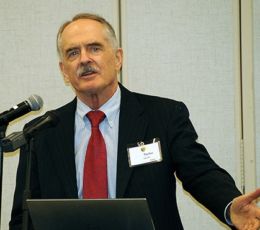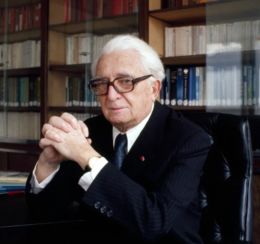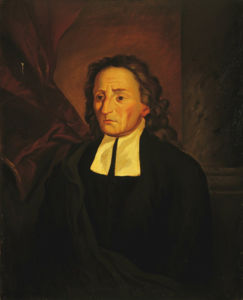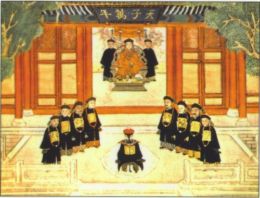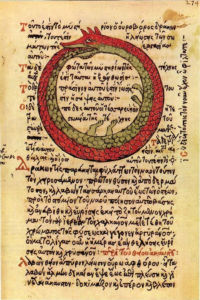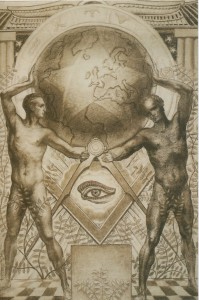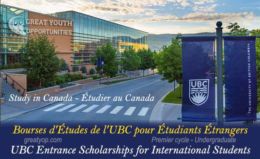I was down in the dumps last weekend when I headed once more to the annual American Renaissance conference. This year was a significant milestone for the organization, founded by Jared Taylor in 1990: It was the twentieth such conference. I was hoping that spending some time with fellow haters would perk me up — and indeed it did. Let me tell you why. (more…)
Tag: Ricardo Duchesne
-
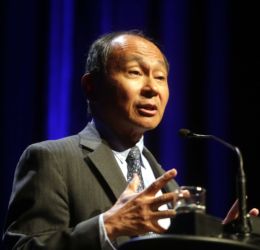
Francis Fukuyama heralded a return to a Western-centered universal conception of history — but one which sees universal liberalism as its endpoint.
4,196 words
Part 7 of 7 (Part 1 here, Part 6 here)
We have no standards to judge what are “good” and “bad” forms of being a human, since there are no subjects existing outside the contingencies of historical time and power relationships. All we can do is engage in “discourse analysis” so as to uncover existing hierarchies by analyzing the fields of knowledge through which they are legitimated. We can engage in questioning how we came to be the “humans” we think we are, such as how we came to think that we have natural rights to life, liberty, and happiness, but such a questioning can only show us how our current way of being human is historically contingent and thus changeable. (more…)
-
5,627 words
Part 6 of 7 (Part 1 here, Part 5 here, Part 7 here)
The “Grand Liberal Narrative” of the Twentieth Century
Despite a wide variety of historical schools, a centrist liberal historiography committed to the ideals of rationalism, meritocracy, and the global spread of human rights dominated the writing of history until about the 1980s — while subsequently integrating within its fold the more progressive schools of New Left, feminist, multicultural, and postmodernist historians via a “new liberalism” determined to ensure equal rights for everyone against the continuing racism, sexism, and ignorance of old liberals. (more…)
-
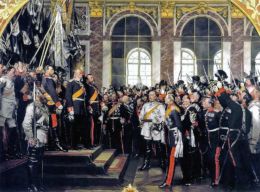
Anton von Werner, The Proclamation of the German Empire (1885). The rise of the German Empire coincided with the rise of German historicism. Both presented a new challenge to British and French world domination.
2,932 words
Part 5 of 7 (Part 1 here, Part 4 here)
German Historicism: The Defeated Alternative to Liberal Progressivism
Peter Watson’s comprehensive book of over 900 pages, The German Genius: Europe’s Third Renaissance, The Second Scientific Revolution, and the Twentieth Century (2010), demonstrates that from 1750 to the 1930s Germany was the dominant intellectual force in Western civilization. (more…)
-
7,419 words
Part 4 of 7 (Part 1 here, Part 3 here)
Enlightenment Consolidation of the Idea of Progress
One of the great philosophers of history of this era would seem to have retrogressed away from this developing idea of progress with his cyclical view of history — that is, Giambattista Vico, author of Scienza Nuova Prima (1725/1744). First, it needs to be recognized that this book offered a very original and profound perspective on history: the idea that we can only understand cultural practices by studying history, which spoke to the improving historical consciousness of Europeans. (more…)
-
5,586 words
Part 3 of 7 (Part 1 here, Part 2 here, Part 4 here)
The Stalled Development of Chinese and Islamic Historiography
Did the modern Chinese write better histories than ancient Europeans? Hegel said that “no other people has had a series of historical writers succeeding one another in such close continuity as the Chinese.” (more…)
-
4,344 words
Part 2 of 7 (Part 1 here, Part 3 here)
The Emerging of a Christian Historical Consciousness
For all we have said about Greek and Roman historiography (and there were other historians, such as Suetonius, Appian, and Casius Dios), contemporary scholars invariably agree that the ancients remained a “non-historical” people. Herbert Butterfield is convinced “the Greeks did not achieve historical mindedness, and never could have achieved it, because they had the wrong view of time and the time process.” The Greeks “only knew of a comparatively short history behind them — they thought that the historical past extended back for only a very few hundred years.” (more…)
-
6,611 words
Part 1 of 7 (Part 2 here)
One of the most startling historical truths is that Europeans invented the writing of history as “a method of sorting out the true from the false,” as a conscious search for a rational explanation of the causes of events, while rendering the results of their investigations in sustained narratives of excellent prose. The other peoples of the world, including the Chinese who maintained for centuries a tradition of chronological writers, barely rose above annalistic forms of recording the deeds of rulers or the construction of genealogies devoid of reflections on historical causation. This would not have been judged a controversial view a few decades ago. (more…)
-
There is an elective affinity — a relationship of reciprocal attraction and mutual reinforcement — between a) John Locke’s argument that a child’s mind initially resembles an “empty cabinet” or a “white paper void of all characters” which can be shaped by controlling the education impressed upon the child’s mind, and b) the origins of a literature specifically written for children in the 1700s in England. (more…)
-
September 2, 2022 Collin Cleary
Stát se tím, kým jsme: levicový etnocentrismus a osud Západu
2.261 slov
English original here
Následující esej původně byla závěrečnou částí recenze Collina Clearyho na knihu Ricarda Duchesneho The Uniqueness of Western Civilization. Protože je v ní ale obsaženo příliš velice důležitých postřehů, než aby zůstaly „zastrčené“ na konci velice rozsáhlé knižní recenze, upravil jsem ji tak, aby fungovala i jako samostatný útvar – Greg Johnson.
Dokonce i ve většině moderních Zápaďanů – ano, i u našich politicky dokonale korektních akademiků – se dosud skrývá jakýsi míhavý záblesk starobylé, indoevropské thymotické přirozenosti. (more…)
-

The Toronto police are being ordered to look the other way when non-whites commit crimes while using overwhelming force against peaceful white protesters, such as the Freedom Convoy.
1,061 words
On Wednesday, June 15, 2022, the Toronto Police Service released findings from its Race-Based Data Collection (RBDC) Strategy. This comprehensive initiative is “aimed at understanding and assessing racial disparities in its policing.” (more…)
-
592 words
In case you are wondering what socialist academics are thinking about the trucker convoy, the same overpaid academics who have been talking about the “democratic rights of workers” and supported Marxist revolutions for decades — well, here is Robert Danisch, Professor of “Communication Arts” at University of Waterloo, hysterically calling for the suppression of the truckers on the grounds that they represent a “threat” to the “democratic rights” of Canadians: (more…)
-
Canada’s universities are supposed to serve students from Canada’s majority population, not international students. However, a significant number of Canada’s university and college administrators obviously think the opposite. (more…)
